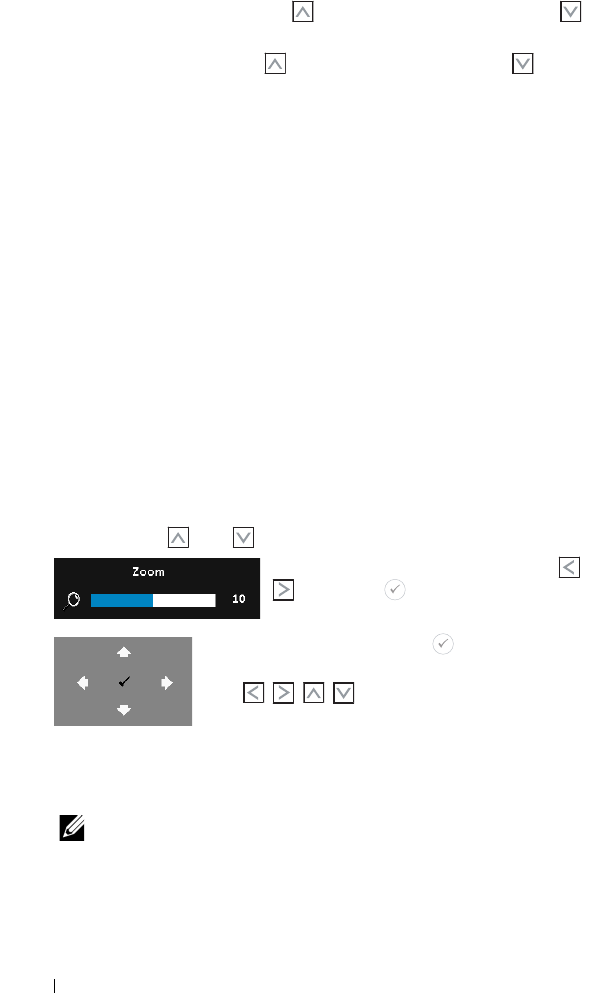
28 Using Your Projector
HORIZONTAL POSITION—Press to move the image right and to
move the image left.
V
ERTICAL POSITION—Press to move the image up and to move
the image down.
F
REQUENCY—Allows you to change the display data clock frequency
to match the frequency of your computer’s graphics card. If you see
a vertical flickering wave, use the Frequency control to minimize the
bars. This is a coarse adjustment.
T
RACKING—Synchronize the phase of the display signal with the
graphic card. If you experience an unstable or flickering image, use
Tracking to correct it. This is a fine adjustment.
A
SPECT RATIO—Allows you to select the aspect ratio to adjust how
the image appears. Options are: Origin, 16:10, 16:9, and 4:3.
•Origin — Select Origin to maintain the aspect ratio of the image
projector according to the input source.
•16:10 — The input source scales to fit the width of the screen to
project a 16:10 screen image.
•16:9 — The input source scales to fit the width of the screen to
project a 16:9 screen image.
•4:3 — The input source scales to fit the screen and projects a 4:3
image.
ZOOM—Press and to zoom and view the image.
Adjust the image scale by pressing or
and press to view on your remote
control only.
ZOOM NAVIGATION—Press to activate the
Zoom Navigation menu.
Use to navigate the projection
screen.
3D D
ISPLAY—Select On to activate the 3D display function (default is
Off).
NOTE:
1
When you want to create a 3D experience, you will need a
few other components including:
a
Computer/Laptop with a 120 Hz signal output quad-
buffered graphics card.
